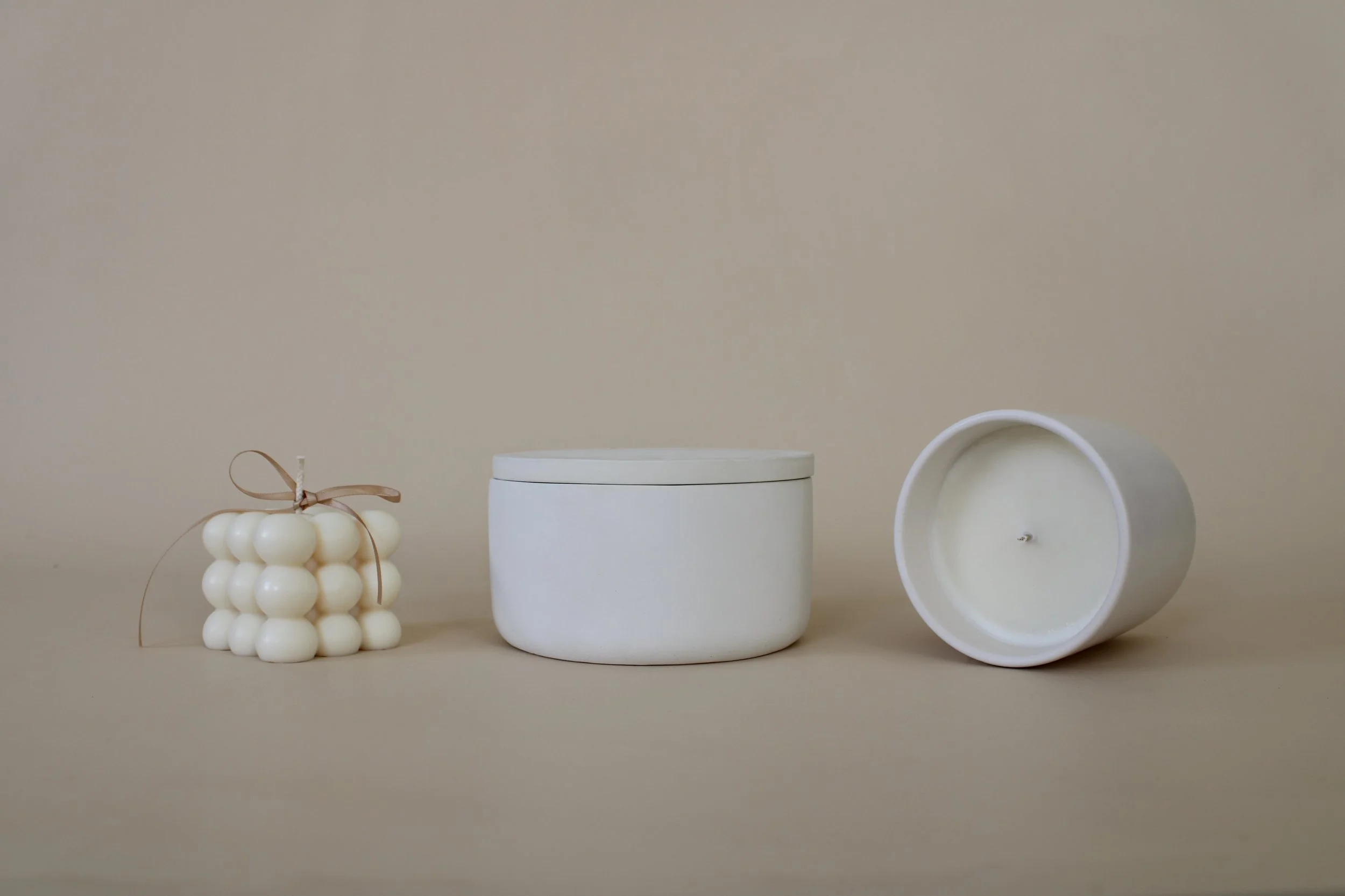Founder and CEO, Breanne (aka Breezy), made it her mission to figure out why she was never able to gift her mother candles. Fast-forward to many months of research later that she discovered her mom had high sensitivity to the ingredients in most name-brand candles on the market. Over 90% of candle manufacturers today use harmful chemicals in their ingredient panel, like paraffin wax, which contains a lot of the same toxins found in diesel fumes. Some other well-loved candles also contain mutagens (chemical compounds or forms of radiation), carcinogens (physical agents that have the ability to cause cancer such as asbestos), and acute toxins (like mercury, chlorine, pesticides and other poisonous substances).
So Breanne set out to make her own non toxic candle collection for her mom. And the rest is history. All of Breezy candles are paraffin wax free.
Our container candles are made of 100% soy wax. Our new sculpture collection is also non-toxic and made without the use of harmful paraffin wax. For further FAQs on our sculpture collection please send us an email.
-
Founder | CEO
FAQs
What is a Mutagen?
Mutagens are chemical compounds or forms of radiation (such as ultraviolet (UV) light or X-rays) that cause irreversible and heritable changes (mutations) in the cellular genetic material, deoxyribonucleic acid (DNA).
source: Encyclopedia of Food Sciences and Nutrition
What are Parabens?
Parabens are chemicals that are used as preservatives to ward off substances that shorten the products' shelf life.
Your body absorbs these harsh chemicals by touching, breathing, drinking and eating. The biggest concern with parabens is hormone disruption. Once in your body, parabens can act like the hormone estrogen in both males and females. This could have an effect on things like:
Fertility (sperm count and length of menstrual cycle)
Reproductive development (fetal nourishment)
Birth outcomes, such as preterm birth
Early Puberty in girls
Cancer
A few common parabens to look for are:
Ethylparaben
Methylparaben
Propylparaben
Isopropylparaben
Butylparaben
Isobutylparaben
What is a Carcinogen?
A carcinogen is a specific chemical or physical agent that has the ability to cause cancer in individuals exposed to that agent. Interestingly, some carcinogenic agents are associated with increasing the risk of developing specific types of cancer. Importantly, once we have identified carcinogens, we can then go on to take specific measures to limit our exposure and so reduce the incidence of specific cancers associated with carcinogens, for example, limiting asbestos exposure.
source: Daphne W. Bell, Ph.D
What are Acute Toxins?
Acute toxicity describes the adverse effects of a substance that result either from a single exposure or from multiple exposures in a short period of time (usually less than 24 hours). Examples of acute toxins are anything from mercury to chlorine, pesticides to medications, and other poisonous substances.
source: Critical Care Nursing



